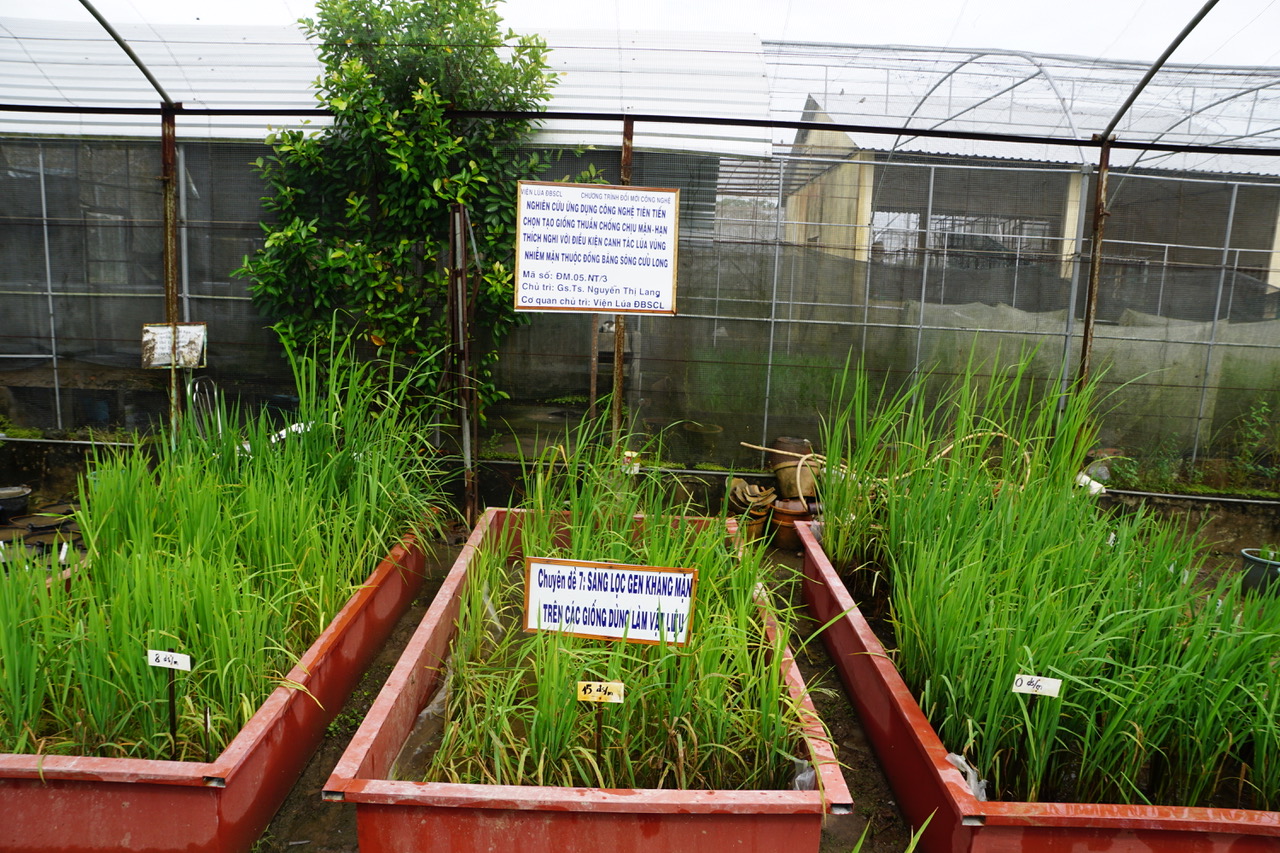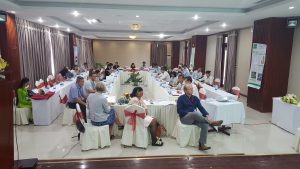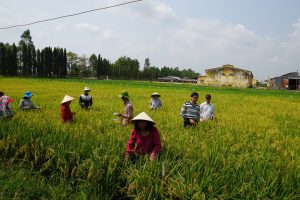
October 10, 2017, by jicke
Vietnam and Nottingham join forces to help solve agricultural problems
Issues facing rice farmers in Vietnam was the subject of a Researcher Link Workshop that bought together leading agricultural experts from across the UK and Vietnam, which enabled research develop collaboration development and the mentoring of early career researchers from both countries.
Professor Zoe Wilson and Dr Sean Mayes and from the School of Biosciences at the University of Nottingham and Prof N.T. Lang from HATRI in VietNam organised the three day event in Can Tho, Mekong Delta, attended by colleagues from UK and Vietnamese institutes who shared their expertise in rice improvement.
 The meeting explored the potential linkage between research in the UK and research and outreach in VietNam, with a focus on the problems facing farmers in the Mekong Delta, where increasing periods or drought and salinization of the soil are threatening the rice productivity of the country.
The meeting explored the potential linkage between research in the UK and research and outreach in VietNam, with a focus on the problems facing farmers in the Mekong Delta, where increasing periods or drought and salinization of the soil are threatening the rice productivity of the country.
These climatic threats are having a serious impact on rice yields in Vietnam, and reducing the number of crop cycles possible, which should be up to 3 crops per year but is set to reduce if solutions are not found. VietNam is a major rice exporter so this threat to production also presents a threat to food security in other countries.
End goal
The end goal of the group is to develop research collaborations to develop new stress tolerant rice for the Mekong Delta region and to increase the adaptive capacity of rice production systems, enabling high, resilient, crop yields.
Researchers presented work on crop research and improvement strategies to identify traits focused towards resilience to salinity, drought and temperature stress. The workshop also included a field visit to see rice screening in the field, grain processing and seed production. Discussions centred on developing collaborations to address thes

e issues by utilising the key strengths and resources in each country, to maintain and increase rice production and quality in the Mekong Delta and Vietnam, and globally to help address issues of food security.
Dr Mayes said, “The workshop focused on stresses facing rice and the ultimate aim is for UK to work with Vietnam to develop new varieties and solutions for this problem. The workshop identified a wide range of potential links and will produce some exciting collaborative efforts.”
Beacons of Excellence
The University of Nottingham is investing £200 million in the future of its research – picking out six beacons of excellence of which ‘Future Food’ is one.
Dr Mayes continues: “In the face of climate change we must develop new, resilient, agricultural systems. Yields overall will need to increase to feed the additional two billion people expected by 2050 and we must aim to meet these challenges in sustainable ways that do not put additional strain on the planet. Research collaborations in areas such as this one will take us closer to this goal.”
Participants included academics from:- Cantho University, Agricultural Genetic Institute, Institute of Agricultural Sciences for Southern VietNam, Vietnam National University Ho Chi Minh City, University of Science and Technology of Hanoi, Nong Lam University of Ho Chi Minh City, Nha Trang University, Mekong delta Development Research Institute, CLRRI, High Agricultural Technology Research Institute for for Mekong (HATRI) Vietnam National University, AGRICAM group, LocTroi group joint stock company, University of Nottingham, University of Sheffield and Rothamsted Research.
The Workshop was funded by British Council Newton Researcher Links ( #ResearcherLinks and #NewtonFund), CLRRI-HATRI and AGRICAM group. The Newton Fund builds research and innovation partnerships with 16 partner countries to support their economic development and social welfare, and to develop their research and innovation capacity for long-term sustainable growth.
No comments yet, fill out a comment to be the first

Leave a Reply